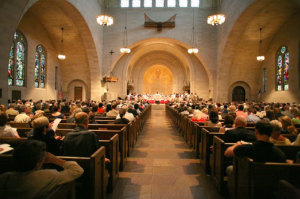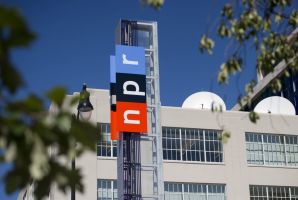Highly Religious Republicans Don't Like Trump
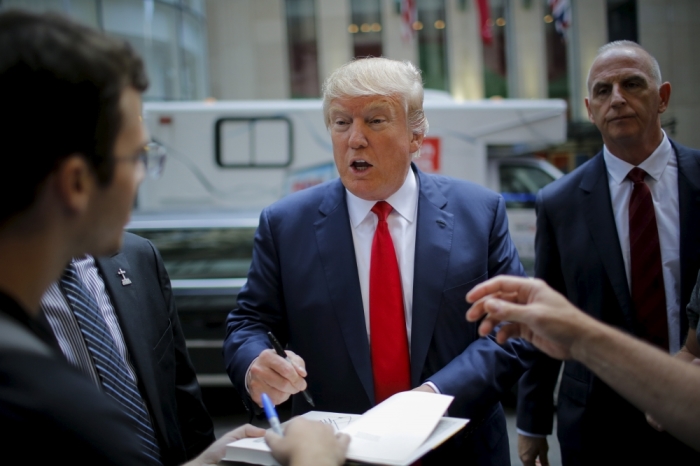
Late in August New York Times columnist Frank Bruni expressed puzzlement over what he cited as Donald Trump's high level of support among evangelical Republicans. A piece this week in The Christian Post similarly, albeit from a different perspective,ponders why Trump is "receiving so much support from evangelicals." CNN carried a recent report on the battle for evangelical voters between Trump and Ben Carson. A recent report in The Wall Street Journal indicated that Donald Trump plans on meeting with evangelical leaders later in September in his office.
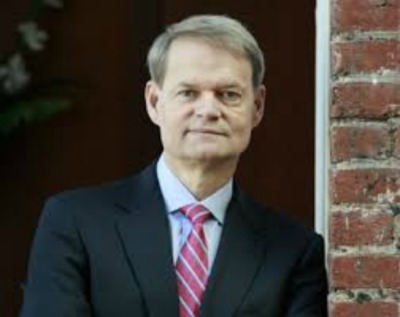
These assumptions about Trump's level of support among evangelicals appear to be based on trial heat polls wherein Republicans are forced to choose one and only one candidate for whom they would, in theory, vote. A better view of Trump's image among this group comes from our Gallup data in which Republicans are asked about their views of each candidate individually. This provides a more comprehensive view of the candidates. The data include our standard measure of those we define as "highly religious" — based on self-reports of religious service attendance and importance of religion in their daily lives. My research shows this provides a close approximation of the various ways in which the term "evangelical" can be operationalized.
The results show that Trump does not, in fact, receive high levels of support from highly religious Republicans. His net favorable rating is 12th in the list of 17 GOP candidates among highly religious Republicans. Ben Carson is the clear leader among the highly religious group.
The accompanying chart shows the net favorable rating (% favorable minus % unfavorable) for the candidates among Republicans and Republican leaners for the time period Aug. 1- Sept. 8.
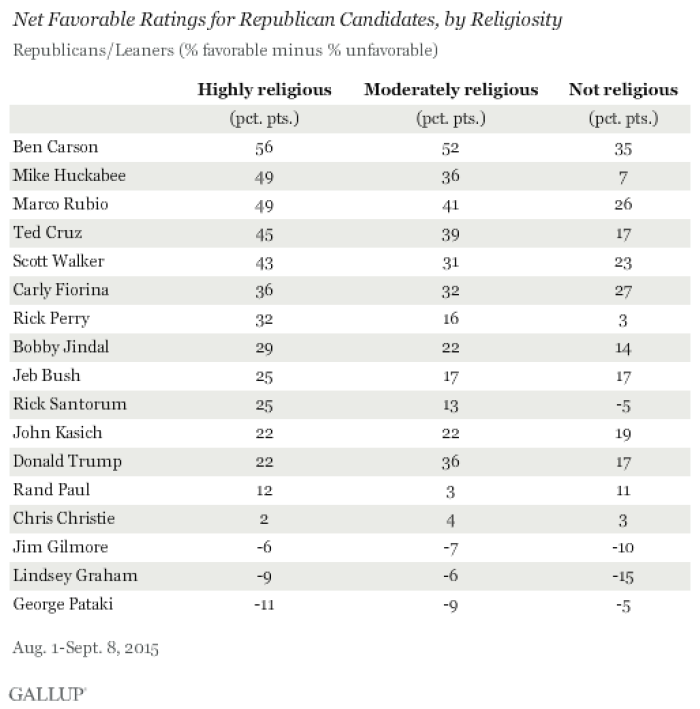
As noted, Trump's net favorable rating among the highly religious group is well below average for these candidates, at 22 percentage points, tying him with John Kasich. Trump is one of the few candidates who does better among the moderately religious, and he does only slightly worse among those who are not religious.
No sign here of any special appeal on the part of Trump to highly religious Republicans.
Note that Ben Carson's 56-point net favorable among the highly religious Republicans is over two and a half times higher than Trump's. In fact, four candidates in all — Carson, Mike Huckabee, Marco Rubio and Ted Cruz — have more than double the net favorable rating among highly religious Republicans that Trump does.
Mike Huckabee has notable positioning, in that his appeal is the most skewed toward the highly religious Republicans of any of the candidates. His 49-point net favorable rating among the highly religious and seven-point rating among the not religious gives him a "religiosity gap" of 42 points. Huckabee, a former Southern Baptist minister, clearly owes his current standing more to highly religious Republicans than is the case for any other GOP candidate. Trump's appeal is much more flat between these two groups, with a gap of only five points.
Bottom line: There is no sign in these image data that Trump has any exceptional positioning among highly religious Republicans.
Another interesting aspect of the relationship between religion and the candidates' images comes when we look at Protestant and Catholic Republicans. During this Aug. 1-Sept. 8 time period, 60% of the Republicans we interviewed were Protestant, about 10 points more than the overall national adult population. Twenty-three percent were Catholic, about the national average. The bigger representation of Protestants balances out the smaller group who have no formal religious identity, which is significantly lower among Republicans than the national average. This confirms the fundamental fact of life that religiosity is one of the defining characteristics of Republicans in the U.S. today.
Six out of the 17 GOP candidates (35%) are Catholic, somewhat higher than the Catholic percentage either among Republicans or among national adults. The Catholic candidates are Jeb Bush, Chris Christie, Bobby Jindal, Rubio, Rick Santorum and George Pataki. All of the rest are a variation of Protestant.
This chart shows the net favorable rating of the two groups of candidates among Protestants and Catholics. Note that Protestant candidate Trump is just about in the middle of the group of Protestant candidates.
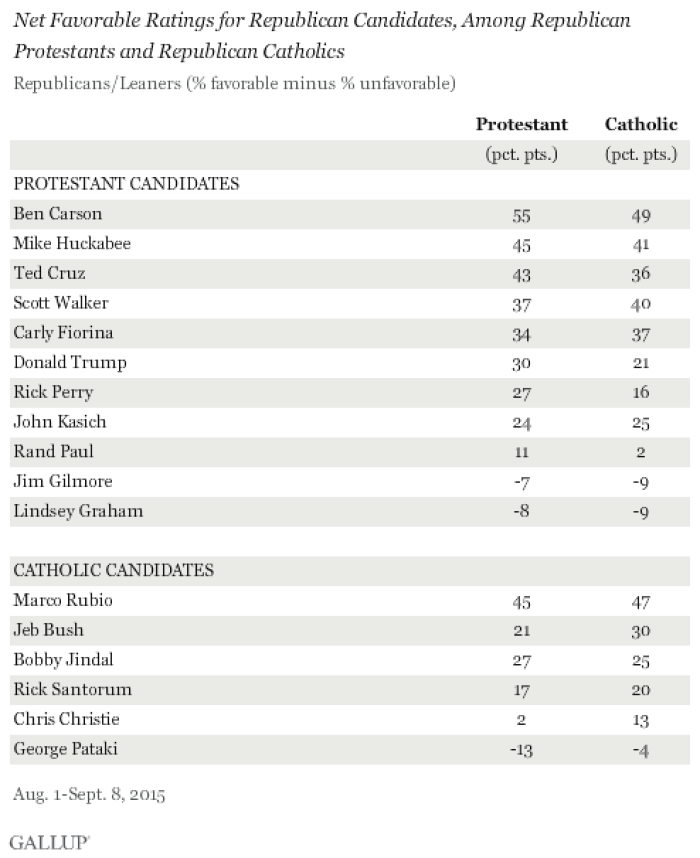
Bush, Christie and Pataki are the three candidates who get the biggest "bumps" from Catholic Republicans compared with Protestant Republicans — nine points for Bush, 11 points for Christie, and nine points for Pataki. Of course, for the last two candidates, that doesn't mean a lot since they have such dismal net favorable ratings among both groups. Bush, a converted Catholic, does somewhat better, and some of this support most likely comes from Catholic Hispanics, given that he does well among that group specifically.
This article was originally posted here.


















